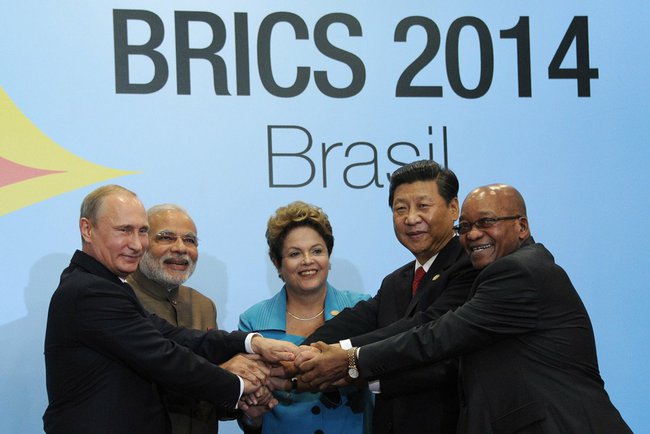Some very big recent news has gone widely unnoticed. Saudi Arabia’s Aramco, the richest corporate prize in the world, has announced the possibility of going public. Saudi Arabia has a $100 billion a year deficit. Lacking the US’s power of money creation, it’s considerable reserves are eroding rapidly. They need short-term cash at the expense of tomorrow.
This is very strange. OPEC can bring back $4 gasoline any time it likes. Why do they refrain? Speculators are baffled by this economic suicide.

Aramco CEO Khalid A. Al-Falih shows his delight at the impending IPO.
Also baffling is the USA’s highly aggressive stance toward Russia. Russia’s population is less than that of Nigeria and not much more than Japan. Russia has no chance whatsoever to withstand the overwhelming combined might of NATO. It is not a threat. Instead Russia joined the WTO and shows every sign of international capitalist cooperation.
A third piece is that Brazil president Dilma Rousseff has been impeached only a year after having been re-elected.
The fourth, biggest piece is Doyle’s dog that didn’t bark. The BRICS monetary union has disappeared without fanfare. It seemed like a good move for the nations involved. Whassup with that?

BRICS leaders in happier days. That’s Dilma Rouseff in the center.
There is no doubt that the United States sees BRICS as a threat to US global hegemony. There is simply no way in the world that the United States can outproduce, intimidate, or otherwise control a union of Brazil, Russia, India, China, and South Africa, with more members likely to join. Surely it is doing everything it can to avert such global harmony. Possibly the ongoing impeachment proceeding against Brazilian president Dilma Rouseff is coincidental, as is the NSA having bugged both her phone and the Petrobras organization that is at the center of the scandal. But Brazil doesn’t matter much, save as an example. The dominant partner is China. What can the United States offer China to induce it to cease its efforts to form a union of unassailable strength?
Cheap oil, that’s what. China’s credit binge has left it vulnerable to a crash when all those payments on empty office buildings come due. It needs cheap oil to cushion the fall. So that was the deal. The US throws Saudi Arabia under the bus to break up BRICS. The House of Saud is kept in line by a threat of withdrawal of US military support. This would most likely lead to the overthrow of Saud by other tribes waiting for their turn. The US does not care which face the oil wears, as long as the hand signs the right contracts. Indeed, Wall Street is surely orgasmic at the thought of getting its hands on Aramco. As a bonus, the European Union is delighted by years of dirt-cheap oil.
This is a very short-sighted program. China lets the US alienate the Saudis and gets cheap oil. China can back out of the deal at any time and restart the BRICS program from a stronger position. China can even make a bid for newly public Aramco. That’s what I’d do if I were them. In short, the US strategy seems guaranteed to backfire.